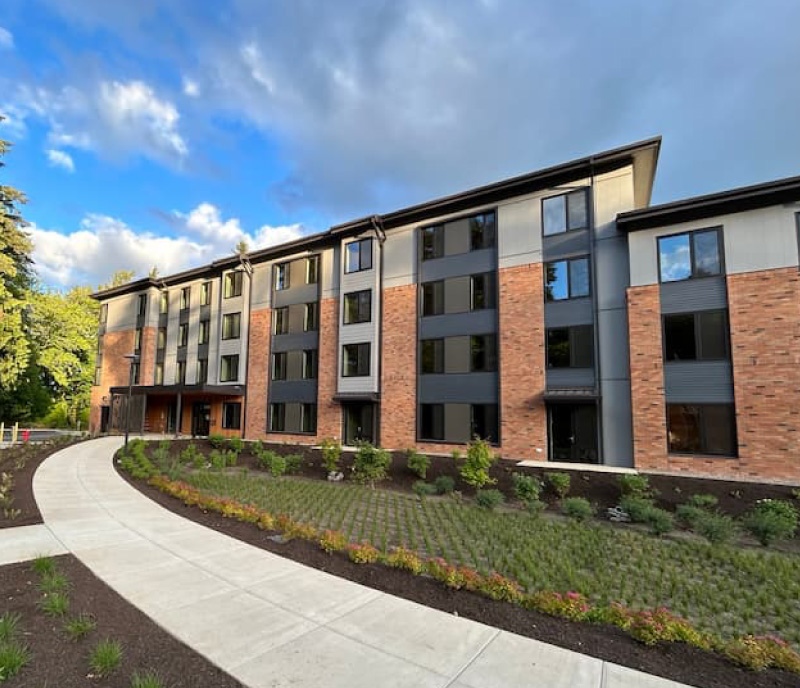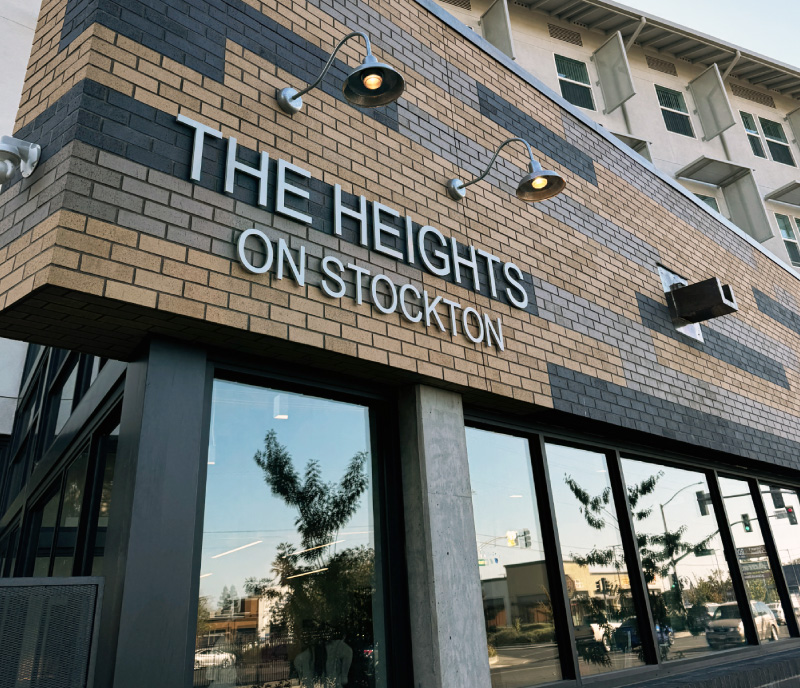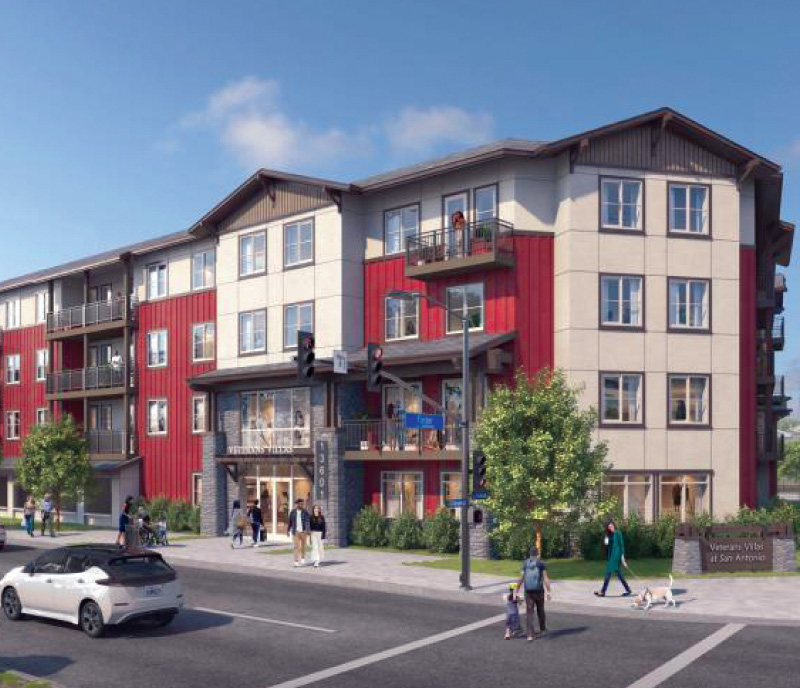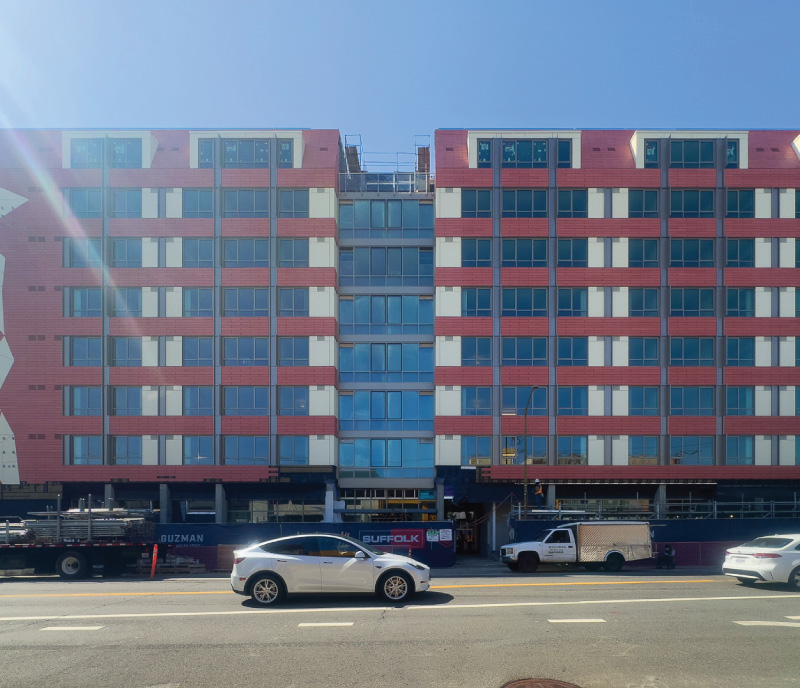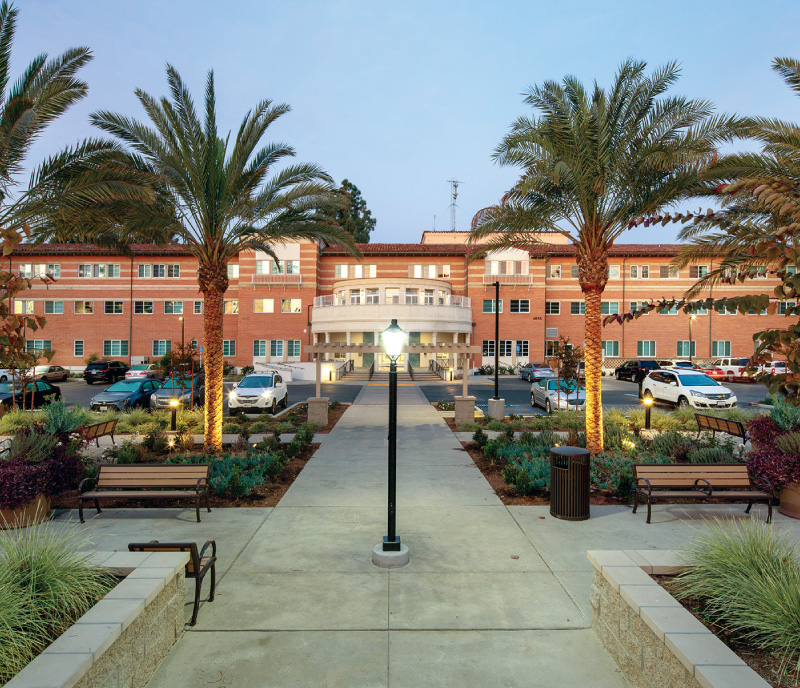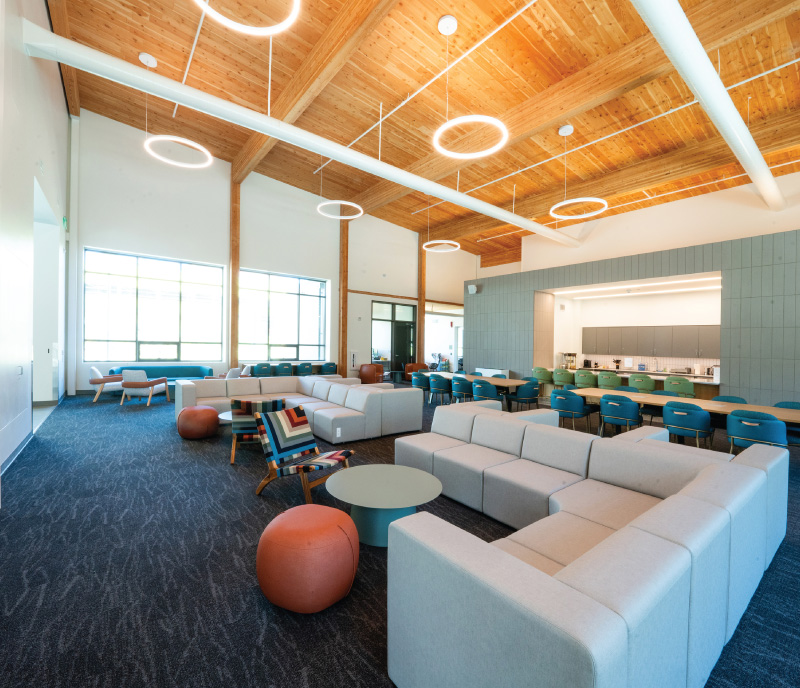

This 2024 Community Report offers a closer look at the work we do every day in the communities we serve. It also highlights the profound impact your support and generosity have had on families, seniors, veterans, and individuals exiting homelessness.
Guided by our 2024-2026 strategic business plan, Building for the Future, we successfully achieved our goals, increased housing production, reduced our environmental footprint, and remained committed to our Founding Sisters’ vision and our core values of respect, justice, and mercy.
We celebrated the grand openings of nine new affordable housing communities and broke ground on future apartments that will provide homes for those most in need.
In 2024, we welcomed Tiffany Bohee as the new president of Mercy Housing California, marking an exciting new chapter in our leadership.
As we look ahead, with the current political uncertainties surrounding funding, the importance of our fundraising initiatives has never been more significant. We are steadfast in our commitment to growing affordable housing and creating welcoming, secure communities, all while ensuring the continued well-being of Mercy Housing residents.
Thank you for being an integral part of our journey. Together, we are building a brighter future for generations to come.
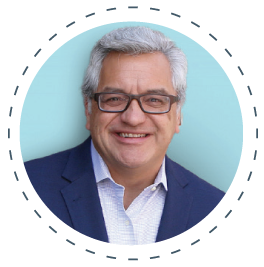
Ismael Guerrero
President & CEO, Mercy Housing

Patricia Cochran
Board Chair, Mercy Housing
2024 by the Numbers
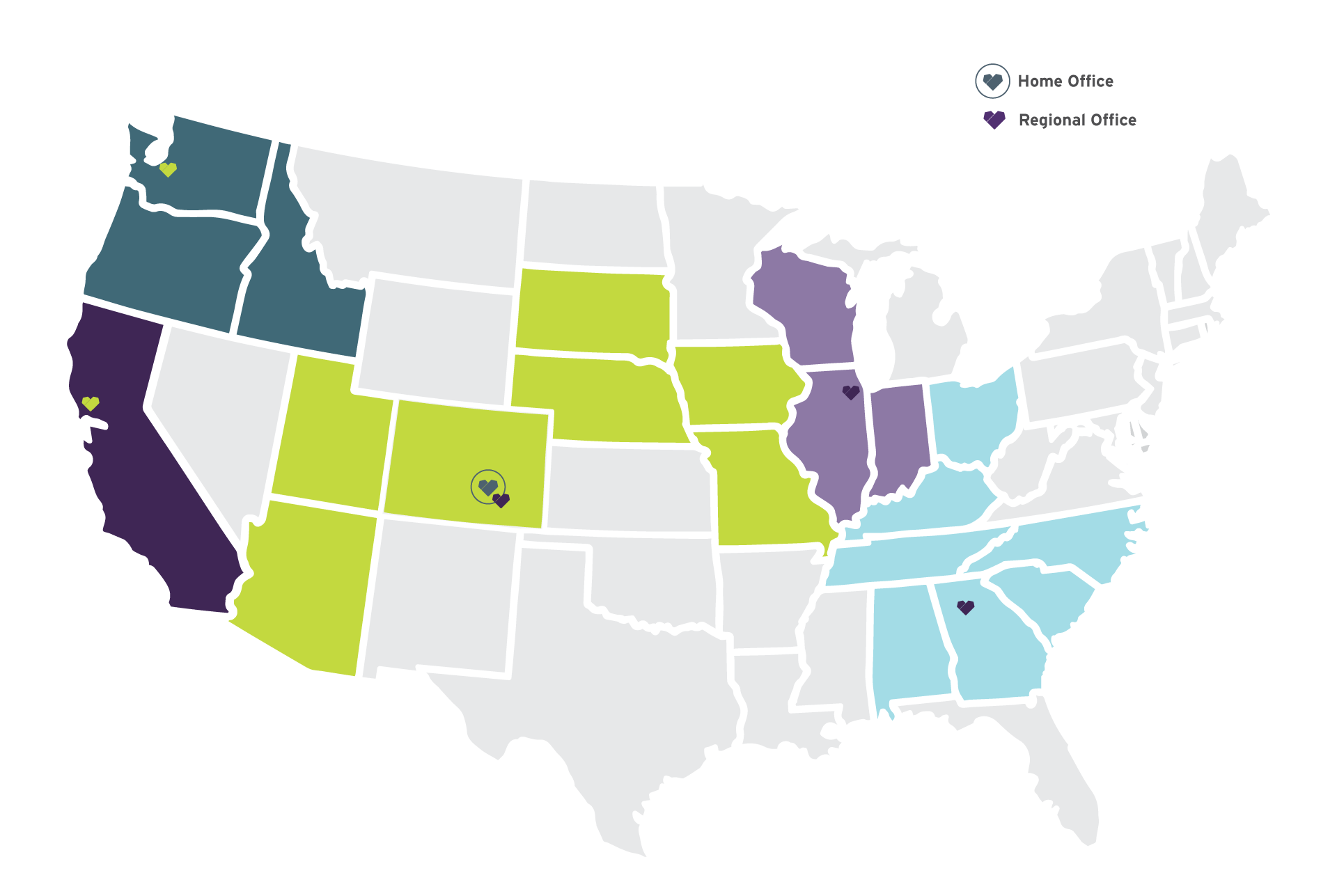
346
properties across 21 states. Mercy Housing is headquartered in Denver, with five regional offices in Atlanta, Chicago, Denver, Seattle, and San Francisco.
25,700
apartment homes. Of the households we serve, almost half are families, more than a third are seniors, and about 15% are people with special needs, including veterans and people who have been homeless.
$34,055,257
in donations from generous supporters that will help fund programs, services, and initiatives
$496,520,893
total revenue, 72% of which is from property rental income.
$5.05 billion
in total assets; net assets include $1.4 billion without donor restrictions and $75 million with donor restrictions.
$3.3 billion
in the pipeline for future developments totaling 5,818 new homes
$24,368
is the average household income for Mercy Housing residents.
This is about one- third of the average American household income of $78,171.
1,707
talented, dedicated people work at Mercy Housing.
$5.9 billion
in affordable real estate development since 1981.
Real Estate Development
Regardless of the scale or population served, each Mercy Housing community is developed with an unwavering commitment to dynamic partnerships, creative vision, environmental sustainability, and extensive community planning. Along with developing brand-new communities, we are committed to preserving existing affordable housing through acquisitions and rehabilitating communities. In 2024, we acquired Falgrove Apartments and completed renovations on Timbercreek Apartments, preserving 336 affordable homes in Omaha, Nebraska. We also completed renovations on Western Winds, a 100-home senior community in Tucson, Arizona.

Our Impact
41,817
people live in a Mercy Housing home.
31,173
individuals were supported with services. Nearly 75% of residents participated in at least one program.
15,830
residents accessed food security services.
11,670
residents were supported by staff to stay stably housed.
3,549
kids attended youth development and after-school activities.
2,864
residents volunteered in and around their communities.
Leading with Purpose: Tangerine Brigham on Housing and Health
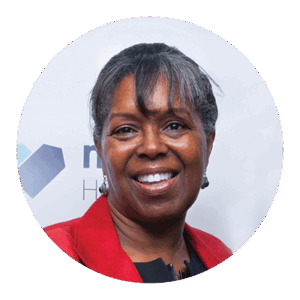 When Tangerine Brigham began her career in 1993 with the San Francisco Department of Public Health, she quickly learned that housing and health are inextricably linked. “Back in 1995, the Health Commission adopted a resolution that housing was a public health issue,” she recalls. “We also know that in order for our healthcare delivery system to function well — for us to really be able to provide services to individuals — they have to be housed.”
When Tangerine Brigham began her career in 1993 with the San Francisco Department of Public Health, she quickly learned that housing and health are inextricably linked. “Back in 1995, the Health Commission adopted a resolution that housing was a public health issue,” she recalls. “We also know that in order for our healthcare delivery system to function well — for us to really be able to provide services to individuals — they have to be housed.”
Tangerine’s experience spans social services, philanthropy, and leadership roles in both San Francisco and Alameda County. Currently serving as Chief Operating and Strategy Officer for San Francisco’s healthcare delivery network, she has witnessed the deep and varied impacts of housing instability. “A lot of people might have housing,” she explains, “but if it isn’t safe or supported, or if they feel isolated, they may end up on the streets. We need multifaceted solutions to make sure housing truly sticks.”
“When I tell people I served on Mercy Housing’s board, they react so positively. That tells me the organization is truly doing something of value for the community.” She credits Mercy Housing’s strong partnerships, collaborative spirit, and willingness to tackle systemic barriers for our reputation as a trusted leader.
“Nothing about housing development is simple,” Brigham noted. “There’s always going to be something unexpected. Mercy Housing excels at problem-solving and bringing expertise to the table without a pre-defined agenda. They listen first.” According to Tangerine, that commitment to collaboration and the well-being of residents is what sets us apart.
Looking ahead, she believes the key to healthier communities lies in ongoing partnerships that treat housing as more than mere shelter. “Ultimately, if everybody actually had a place to live and a reason to get up in the morning, we’d see real change.” It’s this vision that fuels Mercy Housing’s work — and inspires dedicated champions like Tangerine Brigham.
Mercy Housing Management
7 Years
average length of stay for a Mercy Housing resident – three times the national average for renters
100%
of residents can now request maintenance support, pay rent, and provide customer service online, thanks to our new resident portal
4%
increase in net operating income in 2024
by shortening apartment turnover time between residents
Bringing New Homes and Hope to Oregon
We celebrated the grand opening of Mercy Greenbrae at Marylhurst Commons. The community stands on the former Marylhurst University campus, founded in 1893 by the Sisters of the Holy Names of Jesus and Mary (SNJM). Realizing this vision has been a five-year collaboration with community partners.
Mercy Housing’s first community in Oregon features many amenities, including a community room with a kitchen, a technology center, and an outdoor recreational space with a playground. Currently pursuing Passive House US certification, a rigorous, performance-based certification program, this unique building is expected to use 40% less energy than a conventional design.
“Managing one of the most energy-efficient affordable housing communities of its size in the country is a wonderful opportunity for our team! We’re excited to learn more about sustainability and see how a fully electric community can positively impact residents and the neighborhood,” Lorie Warnick, MHM’s Regional Vice President of Property Operations, said.
Building for the Future
Our 2024-2026 Strategic Business Plan
Mercy Housing’s 2024—2026 strategic business plan is designed to be operational, actionable, measurable, and closely aligned with our business needs. The framework was built on the 2020-2024 strategic plan and focuses on four goals. These designated objectives will allow us to continue to provide quality, affordable, service-enriched housing for families, seniors, and people with special needs.
This comprehensive strategic plan results from a year-long collaborative endeavor that engaged more than 300 Mercy Housing staff and board members and numerous external partners, stakeholders, and friends nationwide. Mercy Housing’s leadership aimed to leverage the new planning initiative to address operational enhancements and foster increased collaboration with essential staff and stakeholders at various organizational levels across the country.
We plan to leverage resources to increase and preserve healthy, culturally appropriate, climate-resilient, and cost-efficient affordable housing while improving access to opportunities and resources that enhance the lives of Mercy Housing residents. We continue to build a strong, connected organizational culture where all can thrive while positioning Mercy Housing to build on our mission and expand our impact.
One Year In: Our 2024 Progress Highlights
Built, acquired, or rehabilitated 1,420 affordable homes, surpassing our projections and staying on track to reach nearly 5,000 by the end of 2026
Reduced natural resource usage at properties through upgrades and repairs, such as piloting new water-saving strategies that saved up to $3,500 on monthly water bills
Launched a new digital resident portal, allowing all residents to pay rent, request maintenance, and share feedback online — now reaching 100% of our communities
Engineered digital tools to track and evaluate resident services, ensuring alignment with outcomes that improve resident well-being
Launched new Mercy Together initiative to align every program with our core values, ensuring a workplace and community where everyone has the opportunity to thrive
Check out the plan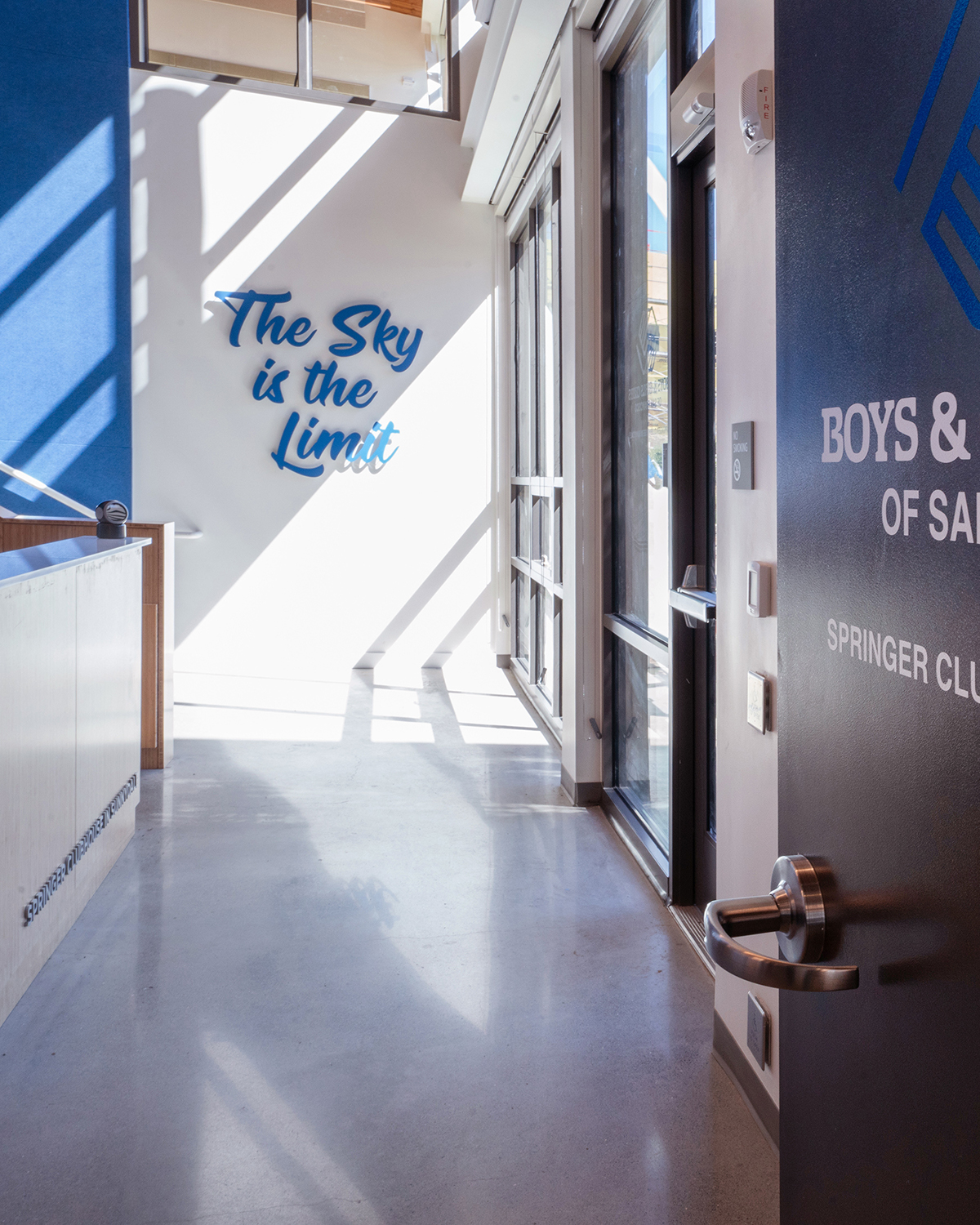
Endowment Gifts at Work
In 2024, donors contributed more than $1.3 million to the Mercy Housing Endowment Fund raising the total to $7.8 million.
Wells Fargo generously contributed $1 million to the Endowment, ensuring the lasting impact of vital services at the Hub in San Francisco’s Sunnydale community. Once among the Bay Area’s most under-resourced neighborhoods, Sunnydale has become a thriving center of hope and possibility. At its heart, the Hub stands as a beacon of resilience — offering gathering spaces, showcasing local art, and providing affordable childcare and after-school programs through partnerships with Boys & Girls Clubs of San Francisco and Wu Yee Children’s Services.
This remarkable transformation reflects the power of collaboration. Capital campaign donors, community leaders, and determined residents have reimagined Sunnydale into a place where families find stability, children grow in confidence, and neighbors build lasting connections. Wells Fargo’s investment not only supports critical services today—it nurtures the promise of brighter tomorrows for all who call Sunnydale home.
Regional Offices
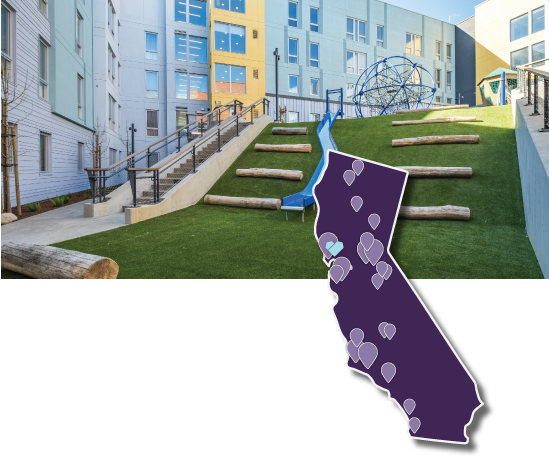
Mercy Housing California
Mercy Housing California (MHC) is taking on the challenge of affordable housing shortages with innovative solutions that address the demand and urgency felt across the state.
Read More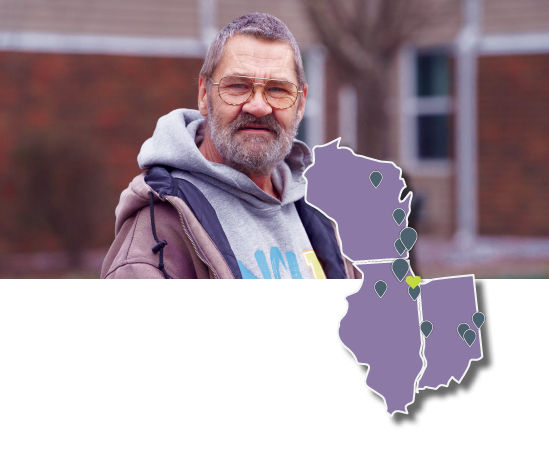
Mercy Housing Lakefront
When Mercy Housing Lakefront (MHL) residents open the doors to their homes, they are also opening doors to a realm of possibilities and opportunities.
Read More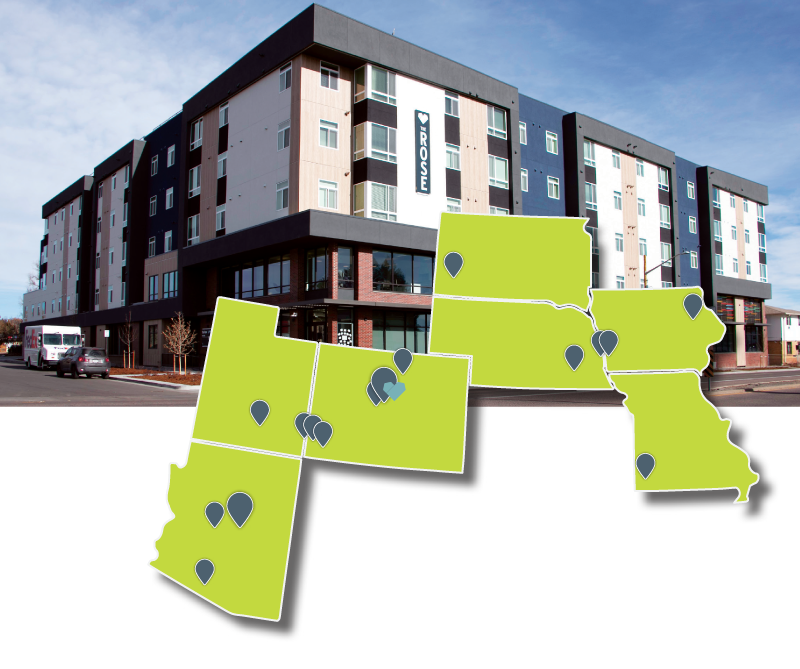
Mercy Housing Mountain Plains
Mercy Housing Mountain Plains (MHMP) residents are the reason we work hard to bring affordable housing solutions.
Read More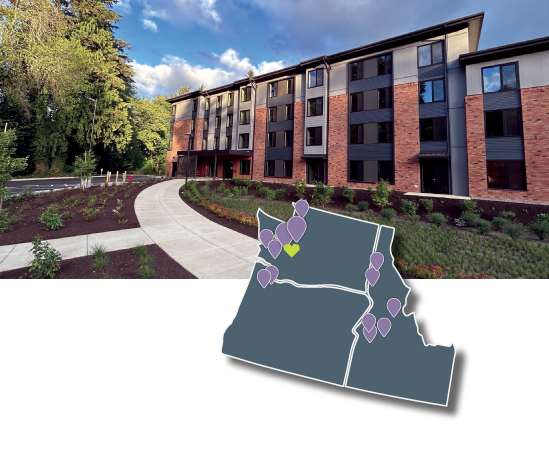
Mercy Housing Northwest
Dedicated to building and providing affordable housing for families and seniors with low incomes, Mercy Housing Northwest (MHNW) is addressing the escalating demand for affordable homes in our region.
Read More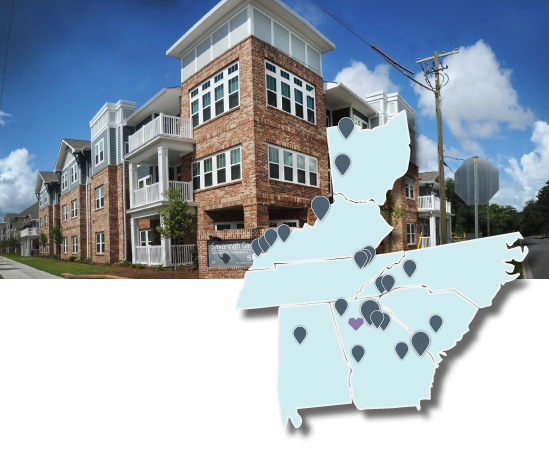
Mercy Housing Southeast
With headquarters in Atlanta, Mercy Housing Southeast (MHSE) provides stable and affordable housing for people with low incomes, including families, seniors, veterans, and people exiting homelessness.
Read More2024 Board of Trustees
Patricia Cochran (Chair)
VSP Vision Care (Retired)
Katherine Aguilar Perez
Cities Leader — Arup
JoAnn Bertges
Wells Fargo (Retired)
Tom Byers Cedar
Cedar River Group
Yvonne Camacho
Simpson Housing (Retired)
Patricia Eck, CBS
Sisters of Bon Secours, USA
Jane Gerety, RSM, PhD
Sisters of Mercy of the Americas
Diane Hejna, CSJ
Sisters of St. Joseph of Orange
David Jackson
Federal Reserve Bank of Atlanta
Douglas Jutte, M.D., MPH
Build Healthy Places Network
Barbara Kelley
Retired
Paul Neumann
Trinity Health (Retired)
John Powell Bellwether
Bellwether Enterprise Real Estate Capital, LLC (Retired)
Sam Ross, M.D.
Bon Secours Mercy Health (Retired)

Founding Communities
- Daughters of Charity, Province of St. Louis
- Daughters of Charity, Province of the West
- Sisters of Bon Secours, USA
- Sisters of Mercy of the Americas
- Sisters of St. Joseph of Orange
- Sisters of St. Joseph of Peace
Support Our Work
Your donations support critical programming and activities that foster community engagement, improve financial well-being, and support youth development from early childhood through high school.

